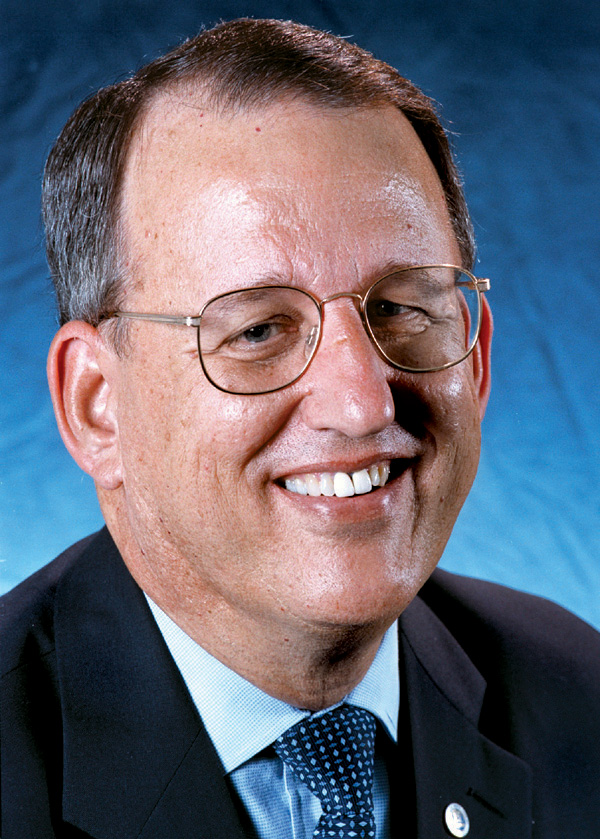Searching for Carolina’s 11th Chancellor
Posted on Nov. 15, 2012During a Carolina chancellor search 25 years ago — and after an exhaustive review that included interviews with 138 alumni, legislators, editors, students, faculty, University administrators, trustees and others — the review team issued a 107-page report identifying qualities it thought should be present in the new chancellor.
The committee suggested the new chancellor “be a person with sufficient psychological strength to make difficult decisions and to press for institutional change; be an effective internal and external spokesperson but also secure and facile enough to function in the larger system of higher education in North Carolina; have a record of strong interpersonal skills sufficient to pull together the institution’s various constituencies; be articulate in one-on-one and group discussions and before large audiences; be in good health and have the physical stamina to work long hours; be an effective manager as well as a leader; have a personal warmth and a sense of humor; meet the full test of a field of the very finest candidates possible.”
The above identified qualities remain important today. But, unlike 25 years ago, those serving on the Chancellor Search Committee seeking candidates to succeed Holden Thorp ’86 will have competition from more than a dozen private and public Association of American Universities-member institutions. AAU President Hunter Rawlings, recently speaking at Carolina, noted that of the 35 public university presidents and chancellors whose institution is a member of the AAU, 13 “left their positions, most prematurely, some fired, some resigned under pressure” during his first 18 months as AAU president.
Rawlings identified five principal reasons for this turnover:
- Financial pressures;
- Ideological pressures;
- “Corporatization” of the university;
- Governance and financial tensions between flagship campuses and higher education systems; and
- The dominating influence of intercollegiate athletics that can undermine academic values and oversight.
When Thorp steps down — much like Bill Aycock ’37 (MA, ’48 JD) who returned to the law school faculty at age 49 after serving as Carolina’s second chancellor — Thorp, 48, will return to teaching chemistry and his lab. The Board of Trustees must recommend no fewer than two finalists to UNC System President Tom Ross ’75 (JD), who will then nominate one person for approval by the UNC System Board of Governors. Each chancellor search is different — and for those who want to read more about that history, the Review has packaged its “History of the Chancellorship” series online atalumni.unc.edu/chancellorship — but there are some factors present during the searches of the past three decades that might suggest areas of likely emphasis.
Two obvious factors relate to fundraising and the health of the chancellor. Chancellor N. Ferebee Taylor ’42 created the position of vice chancellor for development and public service and led Carolina’s first campuswide fundraising campaign — the Carolina Challenge. He reluctantly left the chancellorship for health reasons. Chancellor Christopher Fordham ’47 put in place much of the needed foundation for the Bicentennial Campaign. With the then-mandatory retirement age of 65, Forham recognized that he would be unable to serve throughout the campaign and retired before the campaign’s official launch. Chancellor Paul Hardin served throughout the Bicentennial Observance and the Bicentennial Campaign and announced 18 months before the end of the campaign that he would retire upon its conclusion.
Chancellor Michael Hooker ’69 was identifying the leadership and priorities for the Carolina First Campaign when, tragically, he was diagnosed with cancer, which took his life. Chancellor James Moeser served throughout the Carolina First Campaign and stepped down six months after its conclusion. Chancellor Thorp was putting in place the foundation for Carolina’s next capital campaign when he announced his decision to resign.
It is important that Carolina’s more than 290,000 alumni, our University’s largest and only permanent constituency, have a voice in the chancellor search. In all previous chancellor searches, the GAA has been represented by our board chair, and Eric Montross ’94 is representing us in this search. After determining which qualities and experiences are most essential — since no candidate could be expected to possess all of the desired experiences and qualities — the search committee, the UNC Board of Trustees and President Ross must take a leap of faith. Whoever becomes Carolina’s 11th chancellor will expect and need the full support of each of us.
In the coming weeks, as it did in each of the past three chancellor searches, the GAA’s Tar Heel Network, led by Chair Tom Lambeth ’57, will hold a series of meetings at which alumni will be invited to suggest what they think should be the priorities of our new chancellor. Meanwhile, we hope you will share your thoughts, concerns and suggestions with us. You may send your comments to: Chancellor Search Committee, c/o General Alumni Association, The University of North Carolina, George Watts Hill Alumni Center, P.O. Box 660, Chapel Hill, N.C. 27514-0660.
Of course, you may always e-mail your comments to me.
Yours at Carolina,

Douglas S. Dibbert ’70

